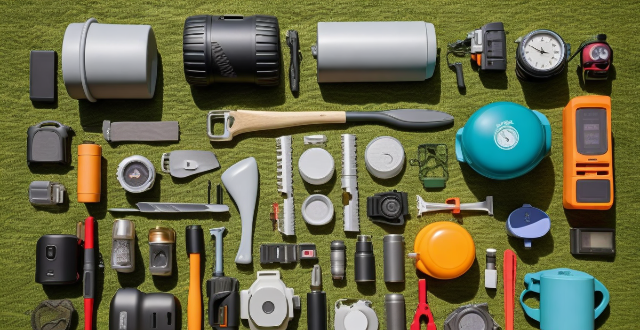Going on a multi-day hiking trip requires careful preparation in terms of gear, physical fitness, planning, and safety measures. Essential items include a well-fitted backpack, layered clothing, comfortable footwear, sleeping gear, cooking supplies, navigation tools, first aid kit, hydration methods, and miscellaneous accessories like headlamps and insect repellent. Physical preparation involves cardiovascular training, strength exercises, and practice hikes. Planning should cover route familiarization, weather forecast checks, and adherence to Leave No Trace principles. Before departing, establish resupply strategies and emergency plans. By following this comprehensive guide, hikers can ensure their safety and comfort during extended treks.

Preparing for a Multi-Day Hiking Trip
Going on a multi-day hiking trip can be an exhilarating experience, but it also requires careful preparation to ensure your safety and comfort. Here's a comprehensive guide to help you get ready for your adventure:
Essential Gear Checklist
Backpack
- Choose Wisely: Select a backpack with enough capacity for all your gear and supplies, but not too bulky or heavy.
- Fitting: Make sure your backpack fits you well to avoid discomfort and potential injuries.
Clothing
- Layering: Dress in layers so you can adjust to changing temperatures.
- Waterproof: Pack waterproof clothing to stay dry in case of rain.
Footwear
- Comfort: Wear comfortable, broken-in hiking boots or shoes.
- Spare Shoes: Carry an extra pair in case your primary footwear gets wet or damaged.
Sleeping Gear
- Tent: Choose a lightweight tent suitable for the climate and terrain.
- Sleeping Bag: Pick a sleeping bag appropriate for the expected temperature range.
- Mattress: Don't forget a sleeping pad or mattress for insulation and comfort.
Cooking and Food
- Stove: Bring a lightweight camp stove if you plan to cook.
- Utensils: Pack compact cooking utensils and dishes.
- Food: Carry high-energy, non-perishable food items.
Navigation
- Map and Compass: Always carry a map of the area and know how to use a compass.
- GPS Device: Consider bringing a GPS device as a backup.
Safety and First Aid
- First Aid Kit: Assemble a kit with essential items like bandages, antiseptic, pain relievers, etc.
- Emergency Signal: Carry a whistle, mirror, or emergency beacon for signaling rescuers.
Hydration and Water Treatment
- Water Bottles/Hydration Bladder: Stay hydrated with reusable water bottles or a hydration system.
- Water Purification: Bring water purification tablets or a filter if you'll be refilling from natural sources.
Miscellaneous Items
- Headlamp/Flashlight: Have a reliable source of light for nighttime or low-light conditions.
- Sun Protection: Pack sunscreen, sunglasses, and a hat.
- Insect Repellent: Keep bugs at bay with effective repellent.
Physical Preparation
Training
- Cardiovascular Fitness: Engage in activities that increase your endurance, such as running, cycling, or swimming.
- Strength Training: Build muscle strength relevant to hiking, focusing on legs, back, and core muscles.
- Hiking Practice: Go on progressively longer day hikes to prepare your body for multi-day treks.
Nutrition
- Eating Well: Maintain a balanced diet rich in proteins, complex carbohydrates, and healthy fats.
- Hydration: Drink plenty of water and electrolyte beverages to stay hydrated before your trip.
Planning and Research
Route Planning
- Know Your Route: Study the trail map and be aware of any difficult sections or alternate routes.
- Permits and Regulations: Check if permits are required and familiarize yourself with local regulations.
Weather Forecast
- Check the Forecast: Be informed about weather conditions during your planned dates to pack accordingly.
Leave No Trace
- Minimize Impact: Learn and practice Leave No Trace principles to preserve the environment.
Before You Go
Resupply Points
- Plan Ahead: If your route includes resupply points, decide what you'll need and where to send or buy it.
Emergency Plan
- Communication: Inform someone not going on the trip about your itinerary and expected return date.
- Medical Information: Carry important health information and insurance details.
By following this guide, you'll be well-prepared for your multi-day hiking adventure. Remember, the key to enjoying your trip is thorough preparation combined with a flexible and positive mindset. Happy hiking!